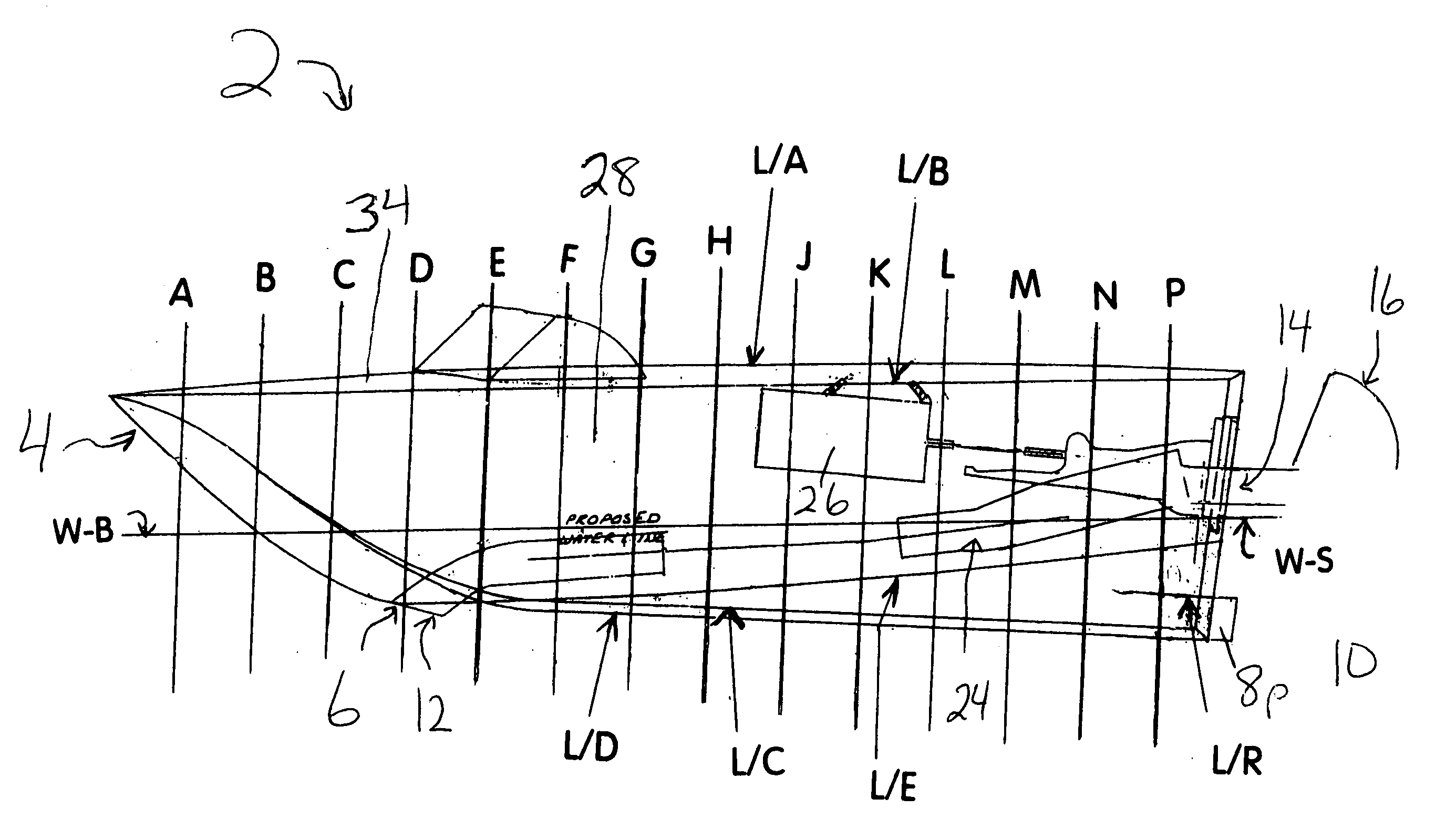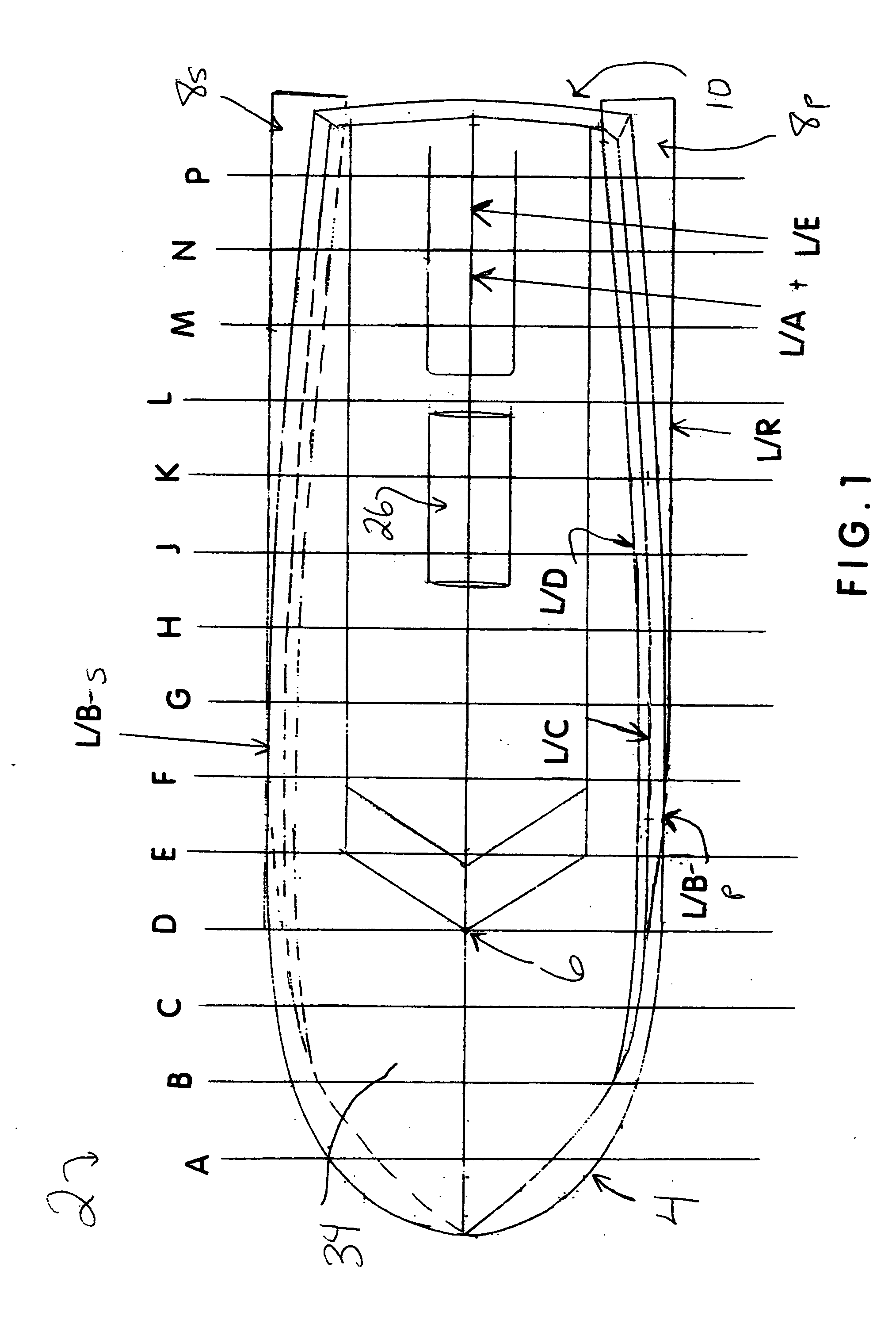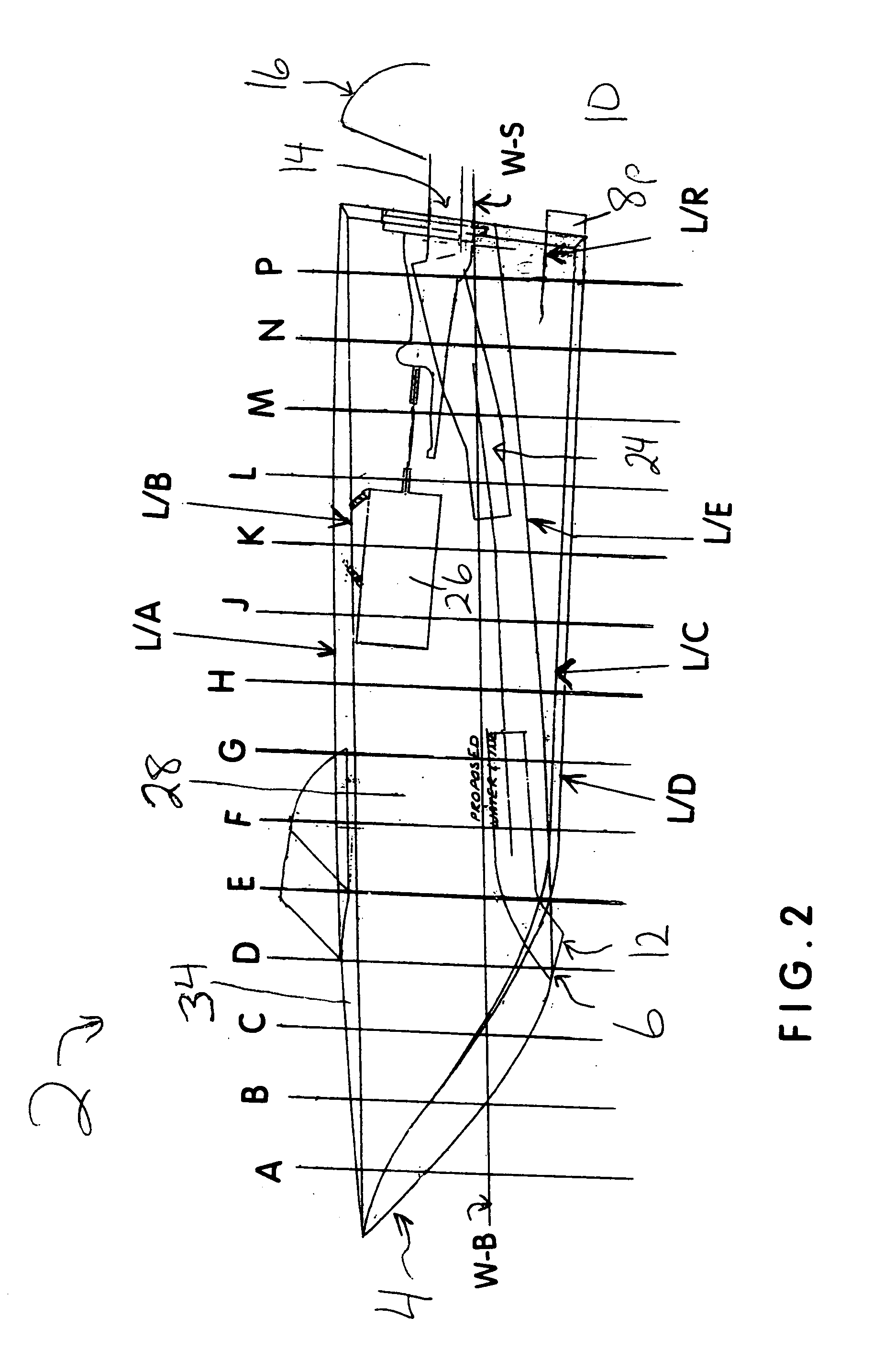Tri-point hydro sled
a hydro sled and tri-point technology, applied in the field of marine vessels, can solve the problems of marine vessels generally having a tendency to bounce, fuel efficiency is diminished, and drag is increased, and achieves low profile in the water, low cost, and little disturbance of backwashing
- Summary
- Abstract
- Description
- Claims
- Application Information
AI Technical Summary
Benefits of technology
Problems solved by technology
Method used
Image
Examples
Embodiment Construction
[0019] The present invention vessel can be described as a marine attack sled, since it has a configuration creating a tri-point contact with the water at high speed. The bottom of the V-shaped bow in combination with the rear portion of its two lateral rails provide the three water contact points. A water jet intake is located aft the V-shaped bow, with the water jet discharge located through the transom above the water line. Thus, the present invention is allowed to plane in a straight ahead mode at high speed while the wet area aft of the bow, when the vessel is running at high speed in flattened water, is maintained at a minimum for improved fuel efficiency, performance, turning without loss of velocity, and less backwash disturbance. When at idle or at low speed, the present invention vessel sits low in the water. However, at high speeds it simply climbs out of the water with only its tri-point areas remaining in contact therewith. A portion of the bow must remain in the water s...
PUM
 Login to View More
Login to View More Abstract
Description
Claims
Application Information
 Login to View More
Login to View More - R&D
- Intellectual Property
- Life Sciences
- Materials
- Tech Scout
- Unparalleled Data Quality
- Higher Quality Content
- 60% Fewer Hallucinations
Browse by: Latest US Patents, China's latest patents, Technical Efficacy Thesaurus, Application Domain, Technology Topic, Popular Technical Reports.
© 2025 PatSnap. All rights reserved.Legal|Privacy policy|Modern Slavery Act Transparency Statement|Sitemap|About US| Contact US: help@patsnap.com



